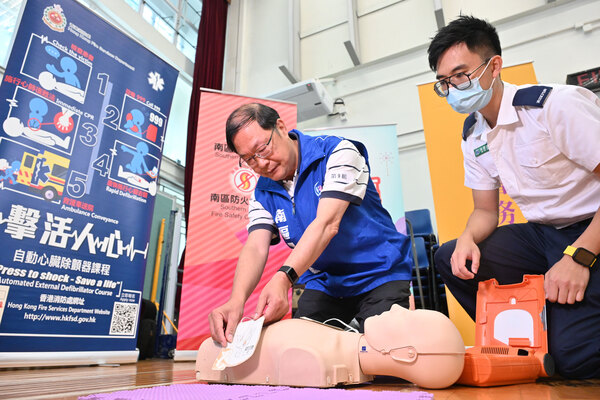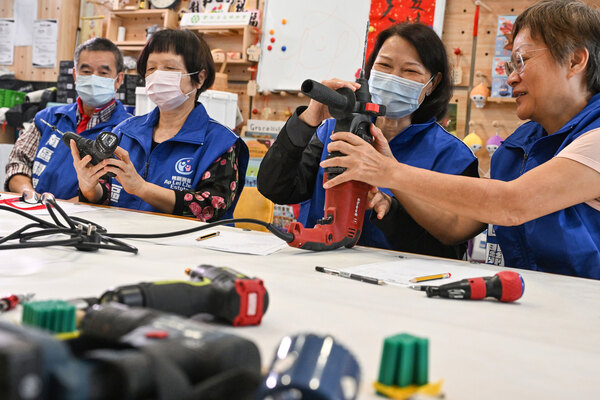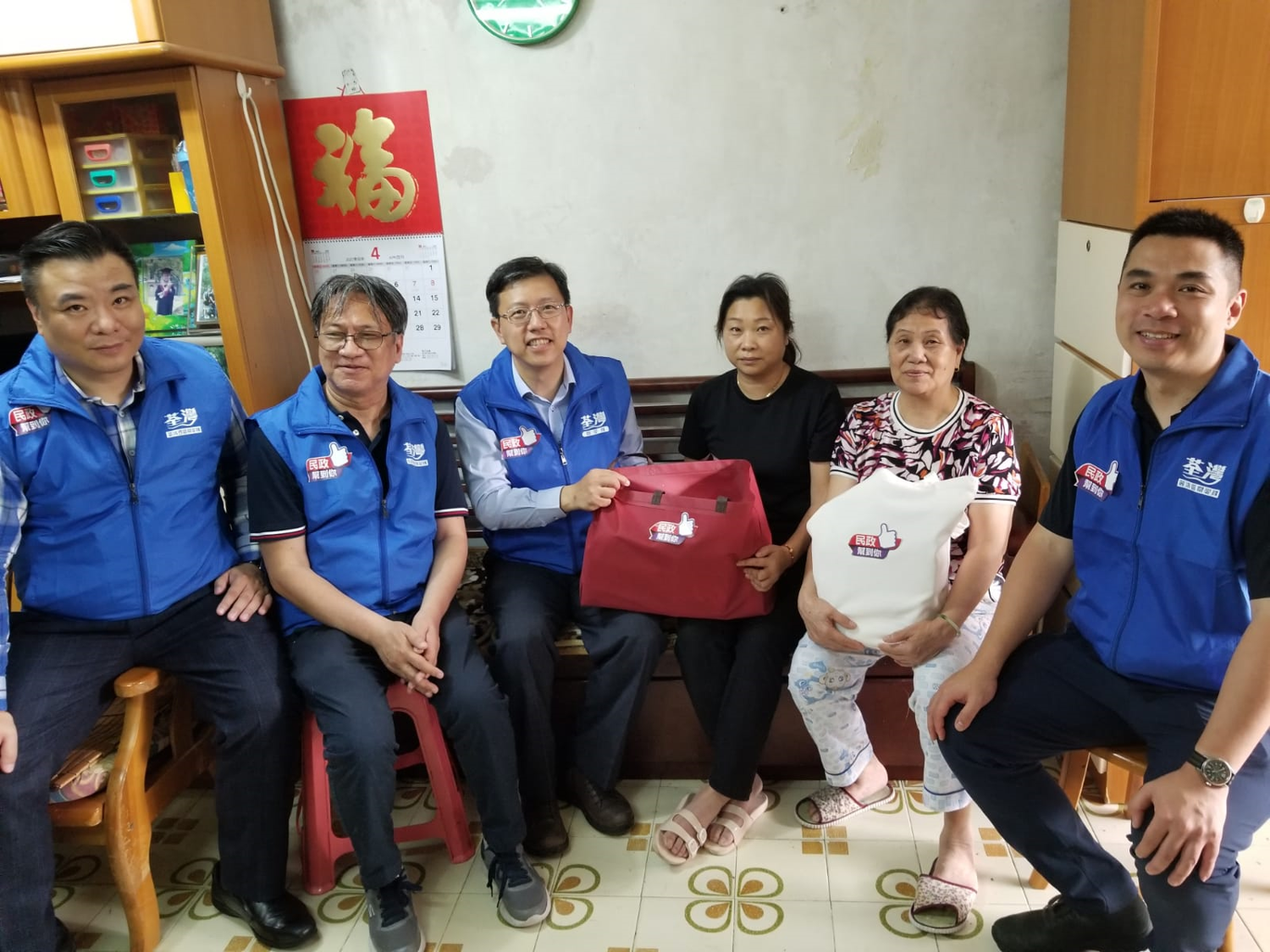
HONG KONG - Fixing leaking bathrooms, helping elders with smartphones, assisting in disaster relief -- care teams across Hong Kong are becoming a hand in need and a shoulder to lean on for local people.
Hong Kong Special Administrative Region Chief Executive John Lee Ka-chiu pledged in his 2022 Policy Address to set up care teams in the 18 districts of Hong Kong to support the HKSAR government's district work. With a service period of two years, each team consists of eight to 12 volunteers and can receive government funds from HK$800,000 to HK$1.2 million (about $102,444 to $153,666).
So far, 452 care teams have been established. Over the past eight months, they have reached out to about 90,000 households, offered services on over 9,000 accounts and helped handle some 200 emergencies, data showed
So far, 452 care teams have been established. Over the past eight months, they have reached out to about 90,000 households, offered services on over 9,000 accounts and helped handle some 200 emergencies, data showed.
Joining forces
In the home of an 80-year-old man surnamed Maa in Tsuen Wan District, members of a care team are installing grab rails in the bathroom. The volunteers are construction professionals from China State Construction (Hong Kong) Limited who will go on to visit over 10 households on the same day to change light bulbs, install doorbells or rewire power cables in old buildings.
"We once helped out at dozens of households a day as care team members," said one volunteer, adding that care teams made community services in Hong Kong more well-planned, targeted and efficient.
ALSO READ: Attacks on Care Teams fly in the face of facts
The improvement is thanks in no small part to Ng Chun Yu, captain of the care team and a member of the Tsuen Wan District Council. A long-time devoted volunteer, Ng rallied a team of diverse backgrounds including teachers and lawyers who can provide a wide range of services to meet the needs of local communities. They have also partnered up with a number of companies for additional support.
"It's no problem, Mrs Maa. You practically raised me, remember?" Ng said replying to an outpouring of gratitude.
Building trust
When typhoon-induced rainstorms lashed Sha Tin District last September, Guo Xuantong, a member of the Sha Tin District Council and a care team captain, led the team to remove tree trunks blocking main roads and put bus stop signs back in place. They also kept an account of all the damage and notified relevant government departments.

"It was my first time doing disaster relief through team efforts," said Guo who had about five years of experience in community social work. Winning trust from residents as a care team member meant the world to her.
ALSO READ: Care Teams provide a versatile way to boost social welfare
Guo also noted that care teams can help inform government efforts to improve local lives, especially by means of documenting and reporting the individual needs of victims of emergencies like fires and burglaries.
"The residents' trust in us is their trust in the HKSAR government," said Guo.
Bringing hearts closer
In Ma Wan, an island with an area of less than 1 square kilometer, a single hospital provides medical care for nearly 20,000 residents, which made free medical services a priority to be undertaken by the care team of the island.
The team has two Traditional Chinese Medicine practitioners come to Ma Wan every first Thursday of each month to treat elder patients. For those who find it hard to travel outdoors, volunteers would chaperone them to their appointments and send them back home.

Vice-captain Pao Siu Wai, a retired policeman, was a busy man on site using his people skills to ensure everyone's needs are attended to. Having engaged in community services for over a decade, Pao said the local community feels more like a family than ever.
READ MORE: Community care teams all set for action
A case in point is the remarkable turnout at regular beach cleaning activities organized by the Ma Wan care team, as residents readily join hands to create a better home.
To extend the outreach of care teams, the HKSAR government has vowed to add 10 teams specifically for supporting ethnic minority households. The cause of neighborly support will be carried forth by the younger generation who are already deeply involved, said Henry Chan, member of the Tsuen Wan District Council and captain of a care team, noting that over one-third of volunteers in the district are under 35.


